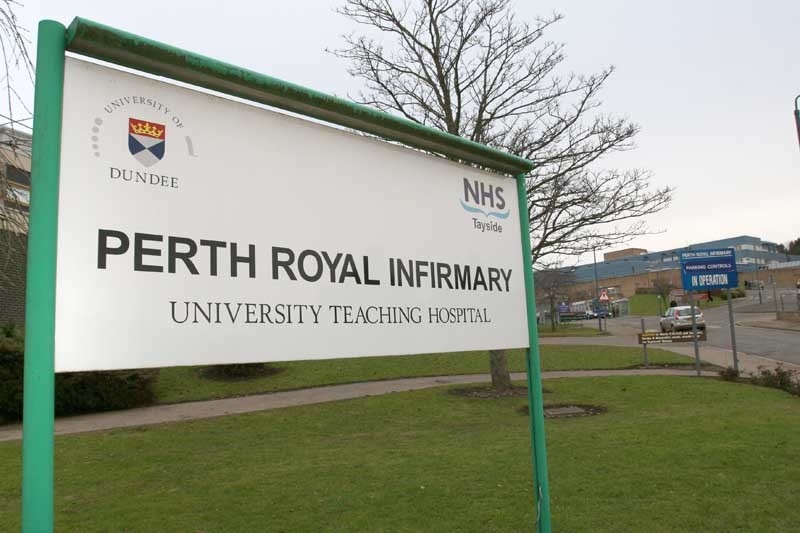An elderly patient has died at Perth Royal Infirmary and three others are under observation after contracting the clostridium difficile (C. diff) superbug.
On Sunday, NHS Tayside closed a care of the elderly ward (Tay ward) to new admissions at the hospital in the wake of the outbreak.
This was under the advice of an infection control team, which is now managing the situation.
A spokesman said that for the patient who died the C. diff infection “was a factor but not the main cause.”
Of the three others, one patient is recovering from the infection and two still have mild symptoms.
The first case was isolated as soon as their infection was confirmed and the others as soon as symptoms occurred, NHS Tayside insisted.PrecautionConsultant microbiologist Dr Gillian Orange said, “In line with our infection control procedures and, as a precautionary measure, we closed the ward to new admissions today while we manage the infection and the ward will remain closed until further notice.
“Staff have already spoken to Tay ward patients and families to explain the situation and to reassure them of the actions we have taken on the ward.”
She added, “We are making sure that patients and relatives know that if they have any further questions or concerns they should speak to the senior nurses on the ward.
“We are also contacting those few patients who have been discharged from Tay ward since Friday, March 26, to inform them of the situation and again giving them the opportunity to speak to senior nurses if they have any concerns.”
Dr Orange said, “Here in Tayside, we have comprehensive infection monitoring procedures throughout our hospitals and these are able to rapidly identify any infection which then triggers a rapid response from our infection control teams.
“These cases of C. diff infection were detected very early which meant we were then able to reinforce all appropriate infection control measures.”
She added, “I am absolutely confident that all appropriate procedures to deal with this infection have been put in place immediately and that every effort has been made to make patients and their families aware of what is happening.”
Last year figures were released which showed that between May 2008 and May 2009, Perth Royal Infirmary recorded 51 cases of C. diff.
An outbreak of C. diff led to the deaths of five elderly patients at Ninewells Hospital, Dundee, last autumn an episode that became the focus of national attention.InvestigationEight people were infected despite a health board investigation later confirming that all the measures designed to prevent the spread of the infection were in place at the time of the outbreak.
Of those, five succumbed to the bug between October 21 and November 6, with two deaths attributed to C. diff.
It was considered a factor in the other three.
Ward 31, an assessment ward for elderly patients, was closed as a result and the number of beds there subsequently reduced.
An investigation eventually traced the source of the infection to a patient who was known to have had the superbug when admitted to the ward.
The health board was criticised over its handling of the outbreak and an internal report, which emerged after a Freedom of Information request, showed that 18 areas for improvement were identified on the ward a month before.
